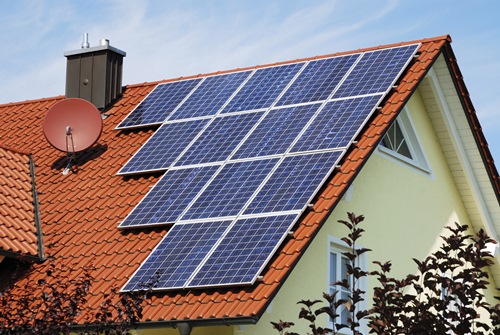It is becoming increasingly more popular to make being energy efficient a priority in people’s lives. This includes making the home more energy efficient for the sake of the environment and in the hopes of saving a bit of cash in doing so. Both of these things are beneficial to you, your family and the world around you, so what are you waiting for?
With the colder months approaching, now is the perfect time to get on the road to checking your home is as energy efficient as it can possibly be to help keep those utility bills down this year. A survey which was conducted recently by Home Heat Helpline has found that
What can you do to make sure your home is more energy efficient? There are plenty of smaller and larger changes that you can make to ensure that you are doing it properly. In this guide on Bridging Loans, we are going to be going through the most popular and most effective ways alike to make your home the most energy efficient possible.
Insulate your Loft
A lot of heat from your home is lost from the roof, and if it is not efficiently insulated you could be practically burning money. The Department of Energy and Climate Change in the UK stated that British homes wasted around £500 million on pumping heat into their properties only for it to escape through poorly insulated walls and roofs.
With decent insulation, you could save about £160 per year on average. So this may be very worth your while in the long run.
Switch to Solar power
Solar panels in homes are becoming increasingly more popular as they can save you money and they also are very environmentally friendly. Many people
who opt for solar panels in the UK recognise that they do not work so well in the winter time so they use a combination of traditional means of energy and the solar energy during this period, which will save them a lot of cash in the process. However, it must be noted that no kind of weather can stop the panels from producing power at all – some energy will always be produced.
Solar PV panels are the most efficient. They generate energy and it is though that the average home could provide 40% of its power from these alone. On average, PV panels cost around £12,000 and last for around 30 years.
Solar energy comes at a high cost in the initial installation, but you are very likely to see a large return in the investment over the years.
Upgrade your boiler
Inefficient boilers could be racking up around £200 in additional cost to your energy bills. That means that upgrading your boiler could be a perfect way to cut down on what you are paying long term.
Keep an eye on your energy consumption
Are you aware of how much energy you are actually using and wasting? It may be wise to invest in an energy monitor, this only cost around £30 but you can actually get them for free from certain gas and electricity providers.
This will give you an idea of how much energy you are using that is really unnecessary. This can act as a wake up call and you may have the motivation to change habits such as leaving lights on and keeping the water running too long.
Research conducted by British gas highlights that having one of these monitors can help household to save as much as £110 a year simply by cutting back on how much energy they consume after becoming aware.
